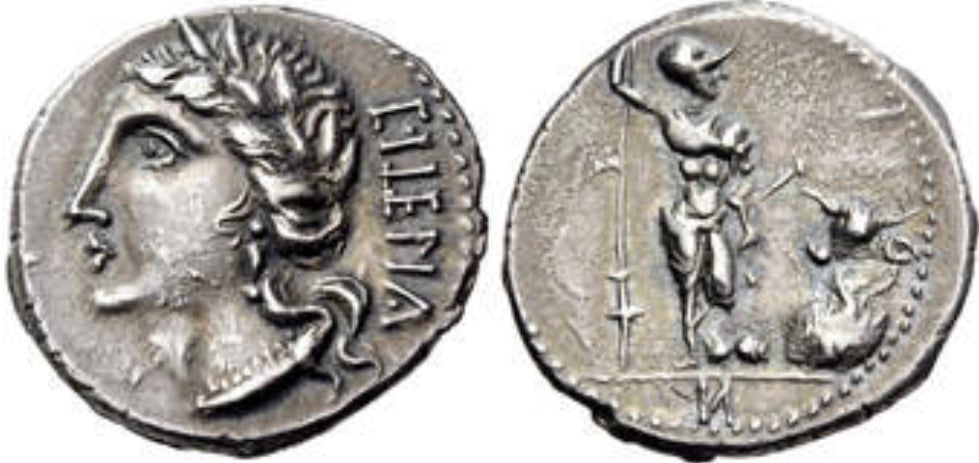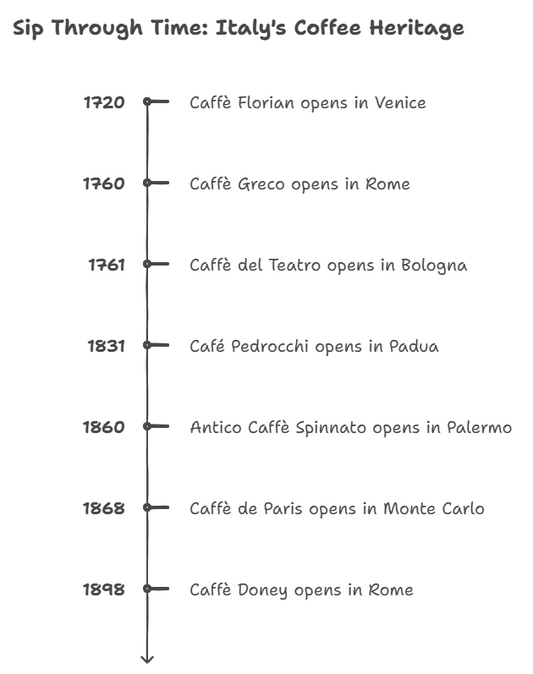Have you ever wondered how Italy or Italia got its name? After all, it does have a rather nice ring to it.
Around 300 decades ago, during the prosperous times of the Roman Empire, the name ‘Italy’ was used to represent the entire Italian peninsula which included Sardinia, the Sicilian islands, and Corsica. By the 19th Century, the use of the name was reduced to represent a geographic designation for an area. It was only after the complete unification of the county in 1870 was the country given the official name of Italy. This essay touches on various possible theories as to how the country developed its name.
Theory 1 (Oscan-related Vitello)
Touted as the most popular theory, this theory highlights that the name ‘Italy’ evolved from the Oscan term ‘Vítelíu’, which is translated into the land of young cattle. The term ‘Vitello’ is the modern version for calf or veal.
To add on, coins embossed with ‘Víteliú’ were manufactured by several allied Italic tribes such as the Sabines, Samnites, and Umbrians who were embroiled in wars with Rome in the 1st Century BC.

Credits: Grand Voyage Italy
Theory 2 (Persian-related Atalu)
Another popular belief was that ‘Italy’ was derived from the Persian word ‘Atalu’ which means land of sunset. Compared to ancient Persia which is present-day Iran, Italy is situated in the west so ancient Iranians claimed that the sun set near Italy.

Credits: Wikipedia
Theory 3 (Greek-related Aithalia)
Many have hypothesized that the name ‘Italy’ stemmed from the Greek term ‘Aithalìa’ or ‘Aethalia’. Synonymous with the land of fire or land with fog and smoke, this term was coined about the numerous volcanoes in Italy, such as Mount Etna which is a stratovolcano in Sicily.

Mount Etna (Credits: Forbes)
Theory 4 (Greek-related King Italos)
Some theorized that Italy was named after Italos or Italus, as attested to by both Greek philosopher Aristotle and Greek historian Thucydides.
Italus was a legendary king of the Oenotrians or ancient Greeks who inhabited Calabria in the extreme south of the Italic Peninsula near Catanzaro. Officially, they were the first inhabitants of Italy and called themselves Italiotes, which means inhabitants of Italy.

Statue of King Italos (Credits: SMAF LTD)
Way before the Roman Republic expanded, the Greeks used the name ‘Italy’ to designate the country between the Strait of Messina, and the line linking the Gulf of Salerno and the Gulf of Taranto. This roughly corresponds to the whole region of present-day Calabria.

Calabria (Credits: Wikipedia)
Theory 5 (Greek-related Italus Bull)
An interesting hypothesis is that Italy was named after a bull or calf that swam from Rhegium to Sicily across the whole strait of the sea. The native word for the bull was ‘italus’ which sounds incredibly similar to the country’s current name.
At this point, you must ponder the story of the swimming bull. Well, it was part of the cattle of Geryon that the God of Strength and Heroes, Hercules, managed to steal. He planned to bring the cattle back to Greece, specifically to the king of Tiryns, Eurystheus, who instructed him to do so. However, Hercules faced several stumbling blocks such as having to fight off two sons of Poseidon (AKA the god of the sea) who attempted to steal the herd of cattle and course not being able to locate the lucky bull which escaped into the sea at Rhegium.

Artistic representation of Hercules’ fight for the cattle of Geryon (Credits: Google Sites)
Whichever the theory, the etymology of Italy has gone through many chapters of history, leaving behind its relics for the world to study and explore.
If you are interested in more history about Italy, you can either read our post on how big Rome was at its peak and why did Italy declare war on the US in WWII.




